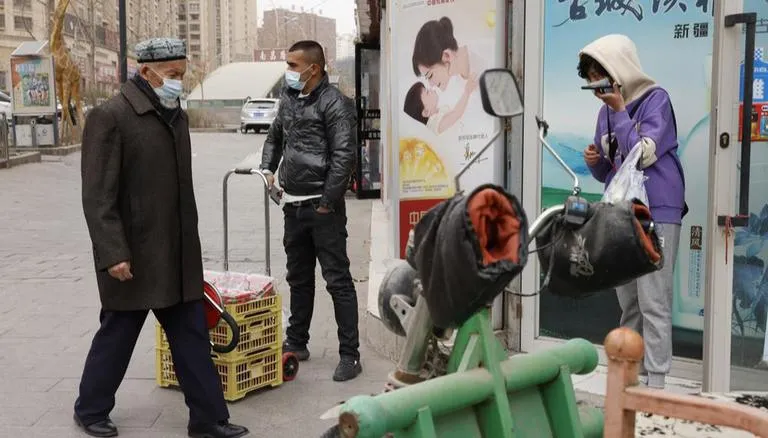Residents of a city in China’s far west Xinjiang region say they are experiencing hunger, forced quarantines and dwindling supplies of medicine and daily necessities after more than 40 days in a virus lockdown.
Hundreds of posts from Ghulja riveted users of Chinese social media last week, with residents sharing videos of empty fridges, feverish children, and people screaming from their windows.
The dire conditions and food shortages are reminiscent of a harsh lockdown in Shanghai this spring, when thousands of residents posted online, complaining they were delivered rotting vegetables or denied critical medical care.
But unlike in Shanghai, a glittering, cosmopolitan metropolis of 20 million people and home to many foreigners, the harsh lockdowns in smaller cities such as Ghulja have received less attention.
As more infectious variants of the coronavirus creep into China, flare-ups have become increasingly common. Under China’s “zero-COVID” strategy, tens of millions or people are experiencing rolling lockdowns, paralyzing the economy and making travel uncertain.
The lockdown in Ghulja is also evoking fears of police brutality among the Uyghurs, the Turkic ethnic group native to Xinjiang. For years, the region has been the target of a sweeping security crackdown, ensnaring huge numbers of Uyghurs and other largely Muslim minorities in a vast network of camps and prisons. An earlier lockdown in Xinjiang was particularly tough, with forced medication, arrests, and residents being hosed down with disi

